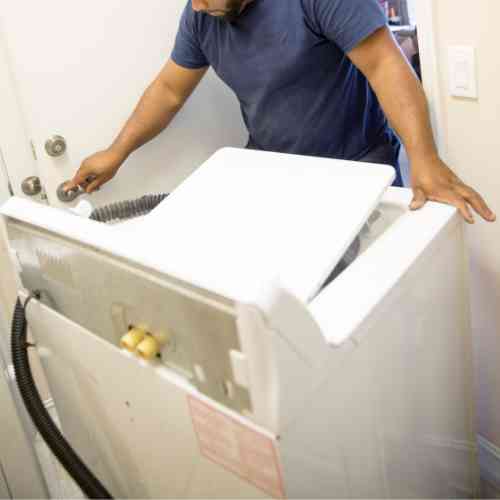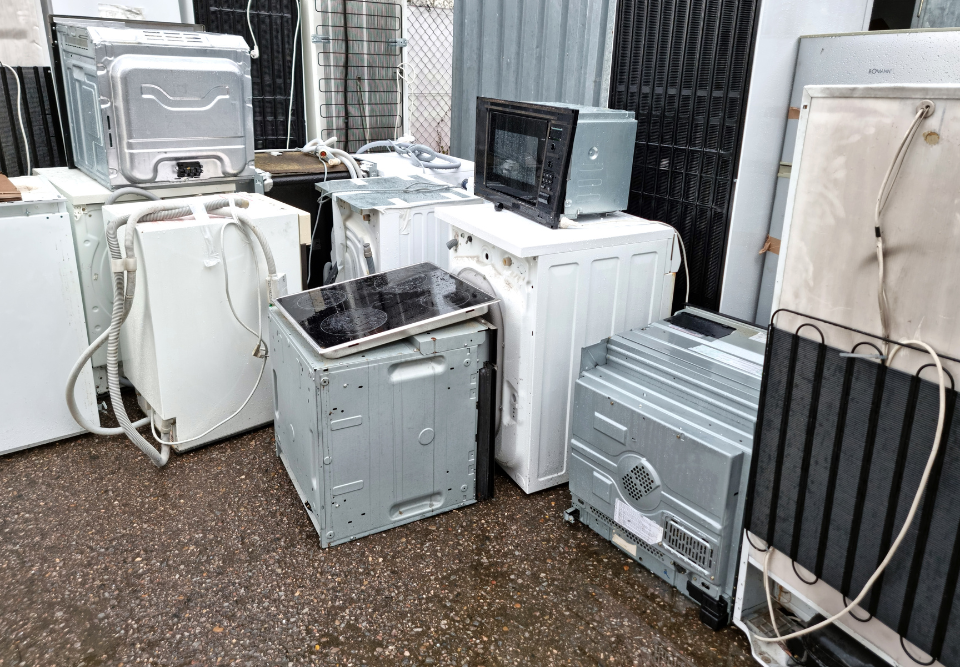
How to Reduce Stress During a Furniture Removal
August 7, 2025
Hot Tub Removal Tips for Homeowners
August 7, 2025The Importance of Proper Appliance Disposal
Understanding the Environmental Impact of Appliances
Improper disposal of household appliances can cause significant harm to the environment. Many appliances contain hazardous materials such as refrigerants, heavy metals, and chemicals that can seep into the soil and water if not handled correctly. By properly disposing of appliances, these toxins are kept out of landfills and prevent contamination of natural resources. Taking steps to recycle or responsibly discard old appliances ensures that their components, like metals and plastics, can be reused, reducing the need for new raw materials and lowering environmental strain. When communities prioritize proper disposal methods, it creates a culture of responsibility that benefits both people and the planet.
Appliance disposal also plays a role in reducing greenhouse gas emissions. Items like old refrigerators or air conditioners contain refrigerants that, if released, can contribute to climate change. Recycling programs are designed to safely extract and manage these chemicals, preventing further damage. The practice of proper disposal extends beyond environmental protection to include social responsibility. Being mindful about how appliances are discarded shows a commitment to the well-being of neighbors and future generations while promoting cleaner, healthier communities that everyone can enjoy.
Safety Concerns in Appliance Removal
Handling large or heavy appliances can pose serious safety risks. Lifting or maneuvering these items without proper knowledge or equipment can lead to injuries such as strains, sprains, or even more severe accidents. Sharp edges, broken components, or leaking fluids increase the hazard, making it essential to approach disposal with caution. By enlisting professional services or following best practices for safe handling, homeowners can minimize these risks while ensuring the appliance is removed efficiently and responsibly.
Moreover, some appliances may still contain residual electricity or gas, presenting additional dangers if tampered with. Proper disposal includes disconnecting and safely preparing these items before removal. Safety measures extend to property protection as well; improper handling can damage floors, walls, or doorways during the moving process. Understanding the potential hazards and taking preventative steps emphasizes the importance of proper disposal as more than a simple chore—it is an act of protection for both people and property, fostering a secure environment at home and in the community.

Extending Appliance Lifespan Through Recycling
Recycling old appliances contributes to extending the life of valuable materials. Metals such as steel, copper, and aluminum can be melted down and reused in new products, reducing the demand for virgin resources. Even plastic components can be repurposed in manufacturing, cutting down on waste and supporting sustainable production cycles. By choosing to recycle rather than discard appliances irresponsibly, individuals help create a circular economy where resources are continually renewed rather than wasted.
The concept of recycling also intersects with technological advancement. Components recovered from old appliances can serve in the production of newer, more efficient models, ensuring that materials retain utility beyond their initial purpose. This approach reduces landfill accumulation while promoting innovation in appliance design. Proper disposal thus becomes a way to contribute indirectly to industry improvements, highlighting the broader societal benefits that thoughtful management of household appliances can achieve.
Legal and Regulatory Considerations
Appliance disposal is often regulated by local, state, or federal laws to prevent environmental damage and ensure public safety. Certain appliances, such as refrigerators or air conditioners, require specific handling due to the refrigerants they contain. Violating disposal regulations can result in fines, penalties, or legal action, making it crucial for homeowners to be informed about proper procedures. By following the rules, individuals not only avoid legal complications but also contribute to broader environmental protection initiatives mandated by regulatory agencies.
Compliance with disposal laws also promotes accountability within the community. Proper documentation and adherence to local guidelines help track waste management practices and demonstrate responsible behavior. These regulations are designed to safeguard public health and the environment, and respecting them reflects a commitment to civic duty. Awareness of legal requirements underscores the importance of proper appliance disposal as a multifaceted responsibility encompassing ethics, safety, and legality.
Protecting Public Health
Appliances that are not disposed of correctly can pose health risks to the public. Leaking chemicals, sharp metal edges, and broken glass are potential hazards that can injure sanitation workers, neighbors, or curious children. By ensuring appliances are processed through safe and regulated channels, these dangers are minimized. The practice of conscientious disposal is therefore an investment in public health, creating safer spaces for all who interact with discarded items.
Beyond immediate injuries, improperly discarded appliances can attract pests or contribute to unsanitary conditions. Rodents or insects may find refuge in old refrigerators or washing machines, leading to infestations that impact nearby homes. Maintaining strict disposal protocols mitigates these risks and fosters community hygiene. Protecting public health through careful appliance management reinforces the notion that disposal is not merely about clearing space but about sustaining safe, livable environments for everyone.
Economic Benefits of Responsible Disposal
Proper appliance disposal can yield economic advantages for individuals and communities. Recycling programs often recover materials of value, which can be sold or repurposed, lowering the costs associated with raw material extraction. Professional disposal services reduce the risk of property damage or personal injury, preventing potential repair expenses. Additionally, many municipalities offer incentives for residents who participate in eco-friendly disposal practices, providing financial motivation to handle appliances responsibly.
Communities benefit economically as well when waste is diverted from landfills. Reduced landfill use decreases municipal waste management costs and minimizes the environmental footprint, making the area more attractive for investment and growth. Local businesses involved in responsible recycling also create jobs, contributing to the regional economy. Proper disposal, therefore, not only addresses environmental and safety concerns but also supports financial well-being for individuals and society alike.
Convenience and Time Efficiency
Attempting to remove appliances without proper planning can be time-consuming and physically exhausting. Scheduling a professional pickup or using designated recycling facilities streamlines the process, freeing up time for other essential tasks. The convenience of organized disposal ensures that appliances are removed quickly and safely, eliminating the stress of figuring out how to transport heavy, bulky items without damage or injury.
Time efficiency extends beyond individual households. Coordinated disposal efforts reduce traffic congestion around collection sites and prevent prolonged storage of appliances in unsafe locations. Communities benefit when appliances are removed promptly, as it decreases clutter and maintains orderly public spaces. Proper disposal methods save time and effort while promoting an organized, well-maintained living environment for everyone.
Supporting Sustainable Practices
Choosing proper disposal methods aligns with sustainable living principles. By diverting appliances from landfills and participating in recycling initiatives, individuals actively reduce waste and conserve natural resources. Sustainable disposal practices reflect a commitment to environmental stewardship and contribute to a larger movement toward eco-conscious lifestyles.
Sustainability also encompasses the long-term benefits of reducing pollution and conserving energy. Appliances contain components that, when recycled, require less energy to process than extracting and manufacturing new materials. Supporting these practices amplifies positive environmental impacts, encouraging responsible consumer behavior and reinforcing the idea that everyday choices can contribute to global sustainability goals.
Reducing Clutter and Improving Home Safety
Appliances that are no longer in use take up valuable space and can create hazards in living areas. Proper disposal clears clutter, enhancing the overall safety and functionality of homes. By removing outdated or broken appliances, homeowners reduce trip hazards, fire risks, and other safety concerns, creating a more comfortable and secure environment for family members.
Clearing appliances also improves the aesthetic and practical appeal of a home. Open spaces allow for better organization and more efficient use of available rooms. Beyond immediate safety, a tidy living area can have psychological benefits, reducing stress and promoting a sense of well-being. Responsible appliance disposal thus combines practical safety considerations with quality-of-life improvements.
Promoting Community Responsibility
Proper appliance disposal encourages a culture of accountability and environmental responsibility within neighborhoods. When residents consistently engage in safe and sustainable disposal practices, it sets a positive example for others, fostering a community ethos that values health, safety, and environmental stewardship. This collective effort amplifies the benefits of individual actions, creating widespread positive impact.
Community responsibility also strengthens local support networks. Neighbors may share resources or information about safe disposal methods, recycling events, or pickup services. By promoting proper disposal practices, individuals contribute to a culture of collaboration and awareness, reinforcing the idea that protecting the environment and maintaining safety are shared duties that enhance the quality of life for all residents.
Conclusion
Proper appliance disposal is essential for environmental protection, personal safety, and community well-being. Handling appliances responsibly ensures that harmful chemicals and materials are managed correctly, reducing the risk of pollution and injury. Recycling and professional removal practices extend the life of valuable materials, promote sustainable living, and support economic efficiency. Individuals who take these steps demonstrate a commitment to both civic duty and environmental stewardship, creating safer and more organized living spaces while contributing positively to the community.
For residents in Santa Rosa, CA, North Bay Junk Removal provides reliable and professional junk removal services, ensuring that appliances are disposed of safely and responsibly. Their team of experts handles the heavy lifting and recycling, making the process convenient and stress-free. By contacting North Bay Junk Removal at 707-478-6817, homeowners can protect their families, support environmental sustainability, and maintain a clutter-free home through trustworthy junk removal services.




